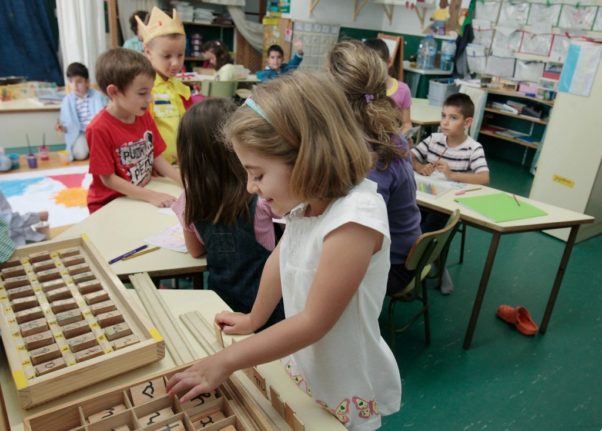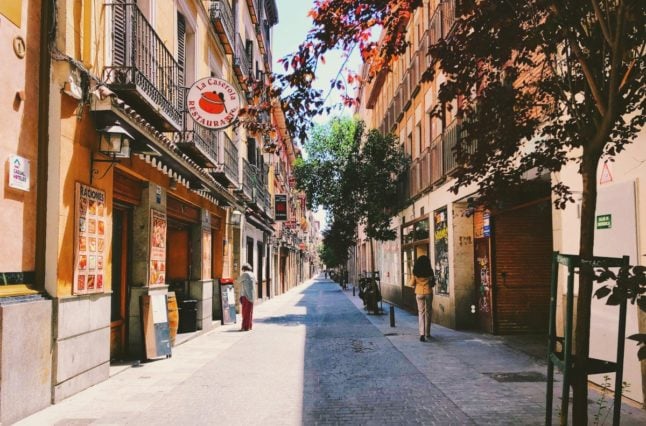From January 2024, schools in the Madrid Community will be open during non-school days for children aged 3 to 6 in early childhood education (Educación Infantil) and those aged 6 to 12 in Primary Education (Primaria).
“The regional government is going to do right by families and help them face day-to-day challenges and ongoing childcare issues,” Madrid’s Regional President Isabel Díaz Ayuso said on Monday as she made the announcement.
The aim is to support students with their studies as well as offer language learning, sports and arts and crafts activities during the holidays.
The average school year in Spain is made up of 175 days of class, whereas in other European countries such as Italy and Denmark it’s around 200 days a year. During the summer, most Spanish schools are closed for two and a half months.
READ ALSO: What childcare options are available over the summer in Spain?
This is one of the reasons behind Spain’s problem of conciliación familiar, the difficult work-family balance that parents face as they can’t afford that much time off work to take care of their kids.
In order for the measure to be approved, the Ministry of Education must sign an agreement with the different Madrid municipal councils and owners of each education centre.
In addition to this, Ayuso said that her government is going to financially help all those families who are facing challenges so that their children can access extracurricular activities.
READ ALSO: Spanish cities among least expensive in Europe for international schools
“No student is going to stop visiting museums, going to the theatre, taking part in excursions or learning an instrument due to a lack of financial resources,” she explained.
According to the regional government’s calculations, €12 million will be allocated for both measures and 200,000 families stand to benefit.
The divisive leader also announced plans to decrease the number of students in each classroom to improve the teacher-to-student ratio.
The same ratios that were in the second year of early childhood education (ages 3-6) will be extended to secondary education (ESO level ages 12-16) so that the number of students per class will go from 30 down to 25.
Last September, the regional government already reduced the numbers in primary education from 25 to 20 students per class.
“To start this course, the number of teaching staff was increased by 219 and an investment in the educational infrastructure of more than €1.3 million was made with the aim of adapting the spaces. For 2023/24, it is expected that we will recruit around 650 new teachers,” Ayuso stated.
Investment in education is reportedly a priority for Ayuso and her government, which this year will spend €130 million to build four new institutes, a school and five nursery schools. The expansion of another 23 centres distributed across 19 municipalities will also be carried out.
“These are actions that aim to respond to the needs of schooling in public schools in our region and will mean the creation of about 12,000 new school positions,” a regional government spokesperson said.
READ ALSO: Almost half of Spanish families pay for private classes for their children



 Please whitelist us to continue reading.
Please whitelist us to continue reading.
Member comments